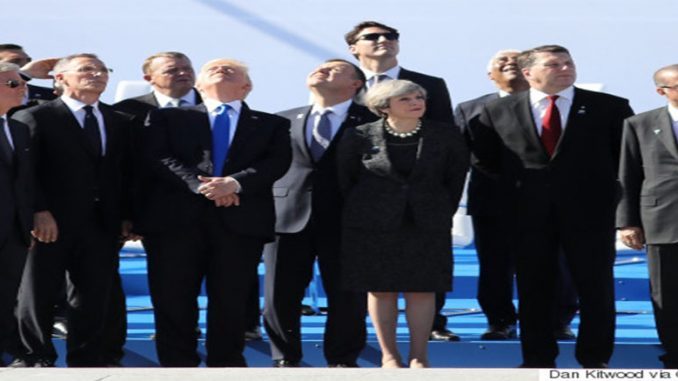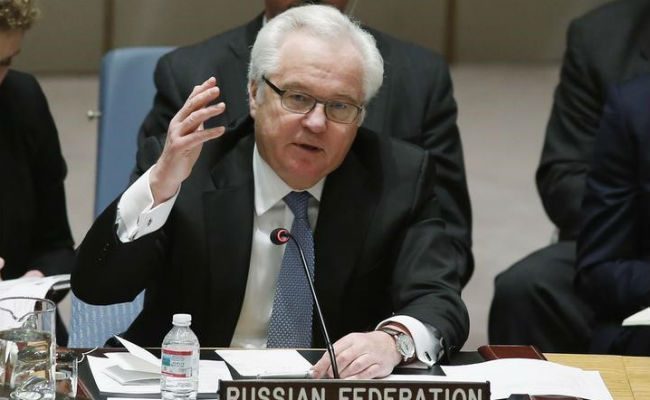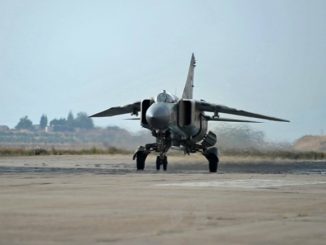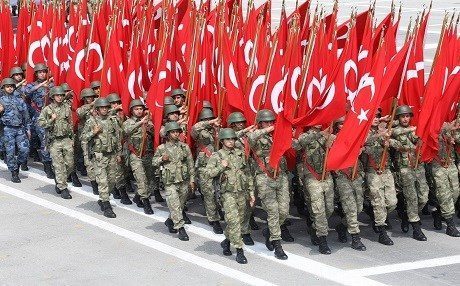
 BY: CEMIL ERTEM*
BY: CEMIL ERTEM*
What should we expect from the NATO leaders’ summit in Brussels that President Recep Tayyip Erdoğan will attend? The summit, held at a time when terrorism is gaining a new dimension and becoming more global, boosts the significance of the summit. Will NATO be able to respond to this new period as a united military force? And will NATO member countries be able to reach a consensus on this new situation during the summit?
To tell the truth, I do not think neither of these will happen. This is because the countries that have constituted the dominant power in NATO since the day it was founded consider the global terror threat a new form of war and do not regard the terrorist structures that they control as a threat.
The recent terrorist attack in Manchester shows the phase global terror has reached. This is an asymmetrical war waged against humanity and I do not think a cold war structure like NATO has an answer to this. However, NATO countries can take up a clear stance on the issue of terror and give up supporting some terror groups as required by realpolitik.
Today, conventional, chemical and nuclear armament is one of the most effective ways of economic sharing, producing and possessing technology, and controlling markets through these means. Who possesses the produced arms and arms technology is not independent from those who produce these arms, namely states. This arms cycle and trade is also a direct reflection of a new global war on sharing.
Today, ongoing terror, which is in parallel with this armament, is detrimental to humanity more than total conventional war. Therefore, NATO must take measures that will restrict the circulation of conventional weapons. NATO can no longer act like a cold war organization.
Currently, the greatest problem with NATO is that it, as a military pact established against the possibility of a total conventional war, knows that a total war will not break out and ignores the ongoing state of war that has replaced it.
When we look at the basic strategies and relevant concepts that NATO has developed since it was founded, we see that they coincide with certain economic and political periods.
For instance, the Cold War period (1949-1991) was an era when the U.S. and the Soviet Union power shared, maintaining it throughout the Cold War. And NATO conducted all kinds of overt and implicit military activities in member states throughout this period. NATO laid the foundations of a new era in Eastern Europe and the Middle East from 1991 to al-Qaida’s 9-11 attacks in the U.S. in 2001. These foundations began to falter in the beginning of the 2000s, despite the invasion of Iraq.
The system, which was mainly based on neoliberal arguments, began deadlocking in Europe before the U.S. crisis. The EU’s integration on the axis of the U.S. and the U.K. could not be ensured despite a monetary union that was raised at the beginning of the 21st century. Now, the U.K.’s Brexit process is actually fragmenting this integration.
Germany is being left alone in continental Europe, like before World War II, and it is clandestinely working for a new war policy in Eastern Europe and Turkey. This is the essence of the current crisis between Turkey and Germany on the İncirlik Air Base.
We know that the profit falls arising from the German industry, which was delayed during the reunification with East Germany in 1990, continued to accelerate across Europe until the end of the 1990s. Therefore, Germany turned the Yugoslavian civil war into a Balkan war, making the second largest move following its East Germany operation. However, Germany’s “Balkanization” strategy in the Balkans was not only a civil war scenario originating from Continental Europe.
For instance, Zbigniew Brzezinski drew a new “Asia-Balkanization” map including Turkey and spanning to China in his book titled “Second Chance.” This map starts from Ankara and reaches China’s hot spots by including the Arabian Peninsula, the North African coasts, the entire Caucasus and Russia’s immense steppes that have rich energy fields. This entire region was a new Balkanization area that was declared a “war territory” firstly by George H. W. Bush and then George W. Bush to establish a new American hegemony.
Brzezinski proposed the status quo of a new “political stability” in these territories largely by protecting the existing situation without democracy. This was a second chance for the neocons. It was also a chance for Europe, which was in two states of mind about whether to unite or separate in the post-Cold War period, to form a German and French-led central Europe.
Today, we see that this strategy is over and Turkey has a large part in this. Turkey did not accept the existing situation and opted for further democracy and welfare.
I think the NATO Lisbon Summit has historic significance. Here, the Euro-Atlantic line was accepted as the reference of stability and democracy and the concepts of common defense, crisis management and cooperative security policies were developed.
Rather than a threat of a total conventional war against the Euro-Atlantic line and NATO members, the threat of terrorism and an attack against territorial integrity was highlighted. And for this reason, common defense, crisis management and cooperative security institutions were developed.
Considering everything that I have expressed above, we need to ask some questions about the Brussels summit.
For instance, how are the cooperative security institution that NATO developed at the Lisbon summit and the sharing of crisis management operate for countries like Turkey that are adjacent to perpetual civil war areas and that are directly vulnerable to terrorist organizations?
Will NATO take an interest in the move of the “Balkanization” processes that were clearly expressed by Brzezinski to countries through terrorist organizations once again? Or, will NATO consider these “insurrections” within the values of the Euro-Atlantic line?
And, will the U.S. insist on supporting terrorist organizations such as the People’s Protection Units (YPG)? I wonder whether this U.S. policy, which overlooked the Lisbon summit, was addressed during the Brussels summit.
As Turkey, we are asking these questions.
*Cemil Ertem is a Turkish columnist at Daily Sabah Turkish newspaper
(Published in Daily Sabah on Friday, May 26, 2017)



